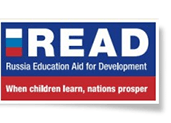In 2017 Russian experts examined the possibilities of SAM taxonomy for its use in other subject areas and at other levels of the educational system. Based on the results of research studies it was decided to develop SAM in the following areas:
- SAM in Math for secondary school
- SAM in other subjects
To develop SAM for secondary school developers chose grade 6 as the most appropriate stage of study for assessing student competencies when transferring from primary to secondary school. Education in grades 5 and 6 is seen as the base, the foundation of all further education.
First of all, it concerns the formation of “universal learning activities” that provide “learning ability”. It is training in grades 5 and 6 that should ensure cognitive motivation and interest of students, their willingness and ability to cooperate and work together with the teacher and classmates and forms the basis of social behavior, which determines the relationship of the individual with society and people around them.
The thematic content of the test included five sections of mathematics: “Numbers and calculations”, “Comparison and measurement of values”, “Dependencies”, “Patterns” and “Elements of geometry.”
Upon completion of the development phase of the test items and the formation of test versions, clinical and full-scale approbation of the versions was completed. Five schools and 400 pupils of the 7th grade participated in approbation.
The result of full-scale approbation of the test was the subsequent statistical analysis and validation of the developed versions of test items. The test showed a high degree of validity and reliability.
The developed tool allows users to identify changes in the knowledge acquisition in mathematics during the transition of students from primary to secondary school. The results of monitoring will predict the further learning of the subject, as well as provide information about gaps in student knowledge and how to eliminate them. The tool is made for teachers, methodologists, school administration and may also be useful for parents.
The methodology of the Student Achievement Monitoring (SAM) tool, originally developed for mathematics in primary school and in the Russian language, has become widespread in the school environment during its existence. Responding to a request from the administration of schools, teachers and methodologists, in 2018 a fundamentally new test was created in the subjects of the natural sciences.
The peculiarity of these tests lies in their ability to test students’ knowledge during the transition from primary to secondary school. The test is designed for students in 5th and 6th grades. The thematic content of the test included three sections: “Biology”, “Physics” and “Geography”.
The high reliability indicators of the SAM instrument in the subjects of the natural sciences confirmed the hypothesis that the SAM tool can be scaled within the school curriculum while maintaining a single theoretical framework. The developed tools can be used by Russian schools to assess the quality of education and also be used subsequently in conducting comparative international studies.






